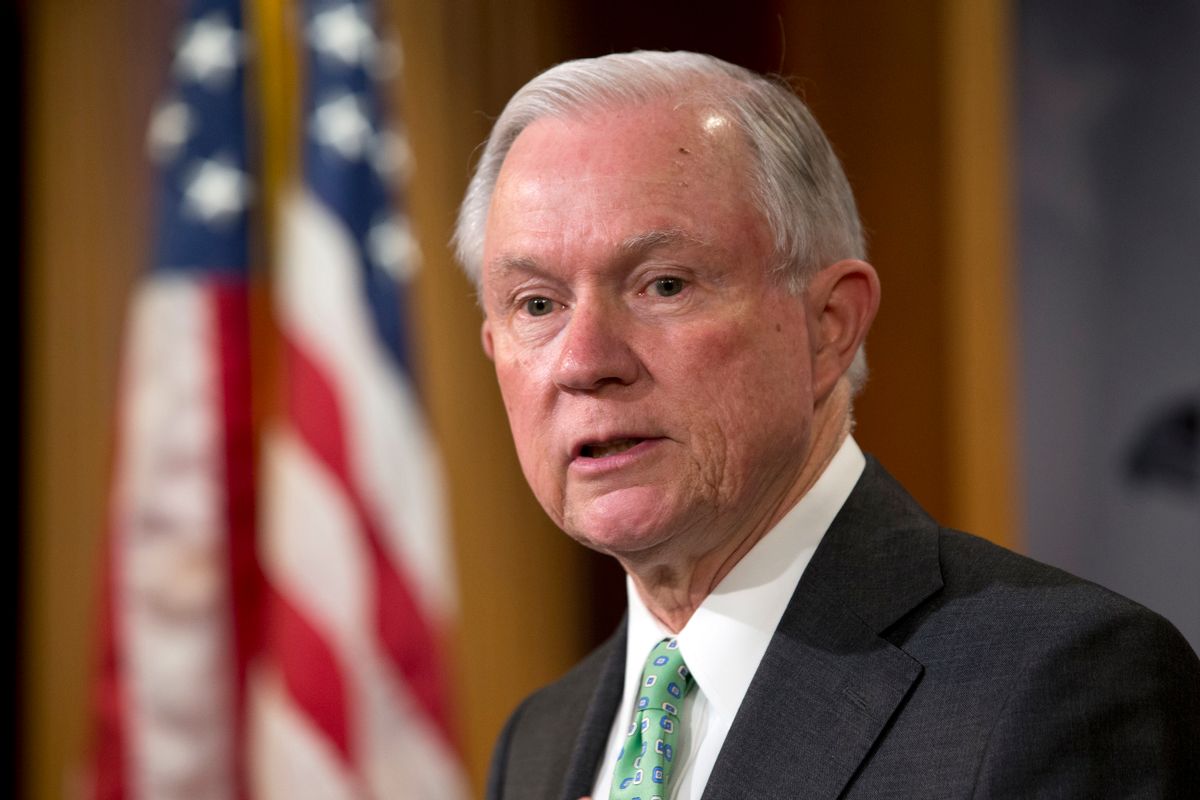Slate’s Dahlia Lithwick flags an exchange from last week's confirmation hearing for attorney general nominee Jeff Sessions, a Republican senator from Alabama, in which Rhode Island Democratic Sen. Sheldon Whitehouse pressed him about the job security a “secular attorney” would have in his Justice Department.
Citing previous remarks that Sessions has made about secularism, Whitehouse asked, “Does a secular attorney have anything to fear from an Attorney General Sessions in the Department of Justice?”
Sessions answered “no” before launching into a discussion of “a little concern I have that we, as a nation, are reaching a level in which truth is not sufficiently respected, that the very ideal, the idea of truth is not believed to be real and that all of life is just a matter of your perspective and my perspective, which I think is contrary to the American heritage.” He added that the United States is “not a theocracy” and that “we should respect people’s views and not demand any kind of religious test for holding office.”
“And a secular person has just as good a claim to understanding the truth as a person who is religious, correct?” Whitehouse asked.
“Well,” Sessions responded, “I’m not sure.”
See the C-Span clip above for the full exchange.
Sessions’ remarks got to a line of argument that he has pushed a number of times, that objective truth is impossible without a certain religious understanding. Speaking to a Faith and Freedom Coalition event last year about the importance of the Supreme Court, Sessions lamented that Supreme Court Justice Sonia Sotomayor had what he called “a postmodern, relativistic, secular mindset” that is “directly contrary to the founding of our republic.”
He added: “So I really think this whole court system is really important and the real value and battle that we’re engaged in here is one to reaffirm that there is objective truth, it’s not all relative. And that means some things are right and some things are wrong, and we’re getting too far away from that in my opinion and it’s not healthy for any country and it’s really not healthy for a democracy like ours that’s built on the rule of law.”
Sessions made similar comments in 2014 when he accepted an award from the far-right David Horowitz Freedom Center (an award he was forced to defend during his confirmation hearings).
Telling the audience that “this republic was founded on the pursuit of truth,” Sessions argued that there’s no truth, and thus no democracy, if “you’re a secularist."
That’s why we have freedom of speech. As [Samuel] Alito said last night at the Federalist Society banquet, ultimately freedom of speech is about ascertaining the truth. And if you don’t believe there’s a truth, if you don’t believe in truth, if you’re a secularist, then how do we operate this government? How can we form a democracy of the kind that I think you and I believe in? . . . I do believe we are a nation that, without God, there is no truth and it’s all about power, ideology, advancement and agenda, not doing the public service.
There’s nothing wrong with citing one’s faith in discussing the existence of objective truth. But that’s not what Sessions is doing here. Instead, he has repeatedly cast doubt on whether someone who doesn’t share his faith, or a person of faith with a “secular mindset,” would be able recognize objective truth and should have a role in government.



Shares